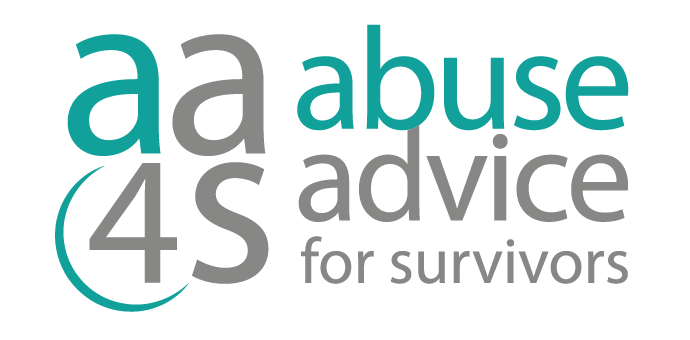EFFECTS OF ABUSE
It is sometimes a surprise to the survivor of abuse that he/she is likely to suffer very similar symptom to other victims/survivors of abuse Unlike triggers which are all different, symptoms are similar. The Independent Inquiry into Child Sexual Abuse, which spent 7 years amassing evidence of the subject area, produced its final report on 20th October 2022. At paragraph 42 entitled
"Common Experiences and the impact of child sexual abuse on victims and survivors"
It is stated "42. The impact of child sexual abuse cannot be overstated because many victims and
survivors have experienced harm that has permeated many aspects of their lives. As
the accounts set out in Victims and Survivors’ Voices and the Inquiry’s investigation
reports reveal:
- effects of the child sexual abuse, both physical and emotional, were profound
and lifelong; - education, employment and career prospects were often irreparably damaged;
- stable, secure and long-term relationships were hard to achieve;
- sexual intimacy was often difficult;
- children who were ‘groomed’ through use of alcohol and drugs often acquired a long term dependency or addiction;
- some victims and survivors were driven to self-harming behaviours by shame, guilt and
embarrassment, and some were so affected that they tried to take their own lives; - many victims and survivors of child sexual abuse that occurred in a religious
context reported that it had led to a loss of faith or a loss of trust in a religious
organisation; and - some people from ethnic minority communities were either ostracised or chose to
leave their family or local community after their child sexual abuse became known.
43. While each victim and survivor inevitably experienced sexual abuse that varied in
its nature and in the settings and circumstances in which it was perpetrated, there were
common features:
- child sexual abuse was often preceded or accompanied by threats, violence, cruelty
and neglect; - there was excessive corporal punishment in some institutions, including in Roman
Catholic and other schools which the Inquiry examined, custodial institutions and child
migrant placements, which was often used as a means in itself of obtaining sexual
gratification; - many children experiencing sexual abuse in a ‘closed environment’ were captive victims
with little scope for reporting abuse to a trusted adult; - many did not disclose sexual abuse for fear of reprisals;
- victims received grudging and unsympathetic responses to disclosure;
- in many settings, compassion was extended to perpetrators but not to victims, with
religious organisations in particular often displaying callous indifference to victims; - abuse often involved deliberate humiliation of children;
- children in custodial institutions are amongst the most vulnerable in society;
- adult survivors of sexual abuse in custodial institutions in the 1960s described some of
the worst abuse the Inquiry heard; - the use of pain compliance on those aged 18 years or younger in custodial institutions
was, and is, a form of physical abuse which contributed to a violent atmosphere in
which sexual abuse thrived; - children with disabilities were particularly vulnerable to sexual abuse; and
- issues with communication could make disclosing abuse more difficult, for example for non-verbal children or those with limited speech"
The above reflects entirely my experience of doing abuse cases for over 25 years.
LET US HELP YOU
To get in touch with us click the email link, or fill in our Contact Form
Terms & Conditions
Obviously this advice is not intended to replace legal advice, nor can we guarantee that the information on the site is completely up to date. Thus we can accept no responsibility legally for any reliance upon it. It is intended to be merely guidance. For a legal opinion upon which you may rely, we insist that you contact us by email or fill in our form
Featured Posts
-

Why do the survivors of Church of England abuse feel more angry towards Justin Welby the ex-Archbishop of Canterbury than John Smyth the evil abuser?
0 comments -

What Effect Does “False Memory” Syndrome Have On Victims/survivors of Abuse?
0 comments -

Will Mohamed Al Fayed’s victims get justice under the law?
0 comments -

Was a Suspended Sentence for Huw Edwards Appropriate?
0 comments -

Private Tutors Escape Vetting Legal Loophole, a Scandal
0 comments -

Should the BBC have sacked Huw Edwards when he was arrested and saved themselves £200,000?
0 comments -

Will the government consultation on Time Delay in Child Sexual Abuse cases change the law by abolishing Limitation?
0 comments -

Are WhatsApp putting profit before safety in lowering their age limit from 16 to 13?
0 comments -

Are ‘posh’ victims of abuse denied access to justice?
0 comments -

How does Earl Spencer’s Disclosure of Abuse Reflect on Boarding Schools?
0 comments
Categories
Archives
- November 2024
- October 2024
- September 2024
- August 2024
- May 2024
- April 2024
- March 2024
- February 2024
- January 2024
- December 2023
- November 2023
- October 2023
- September 2023
- August 2023
- July 2023
- June 2023
- May 2023
- April 2023
- March 2023
- February 2023
- January 2023
- November 2022
- October 2022
- September 2022
- August 2022
